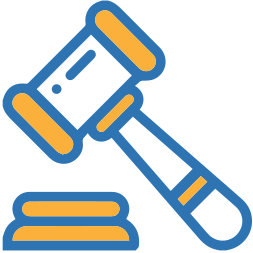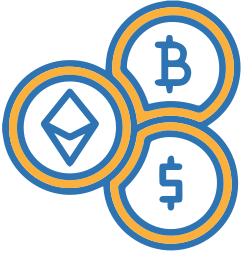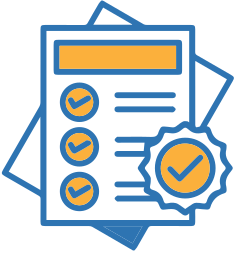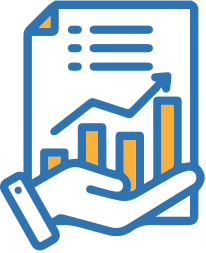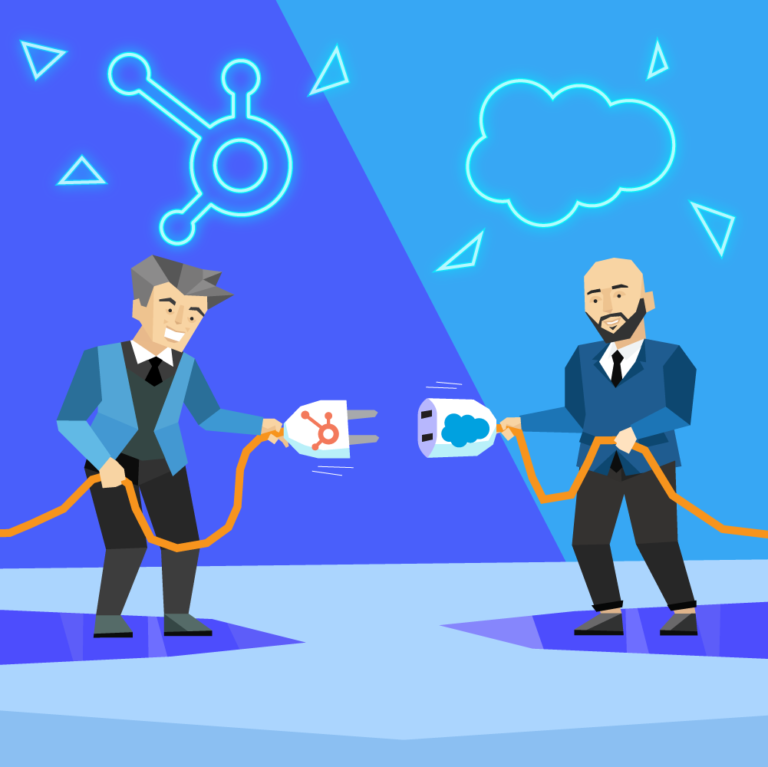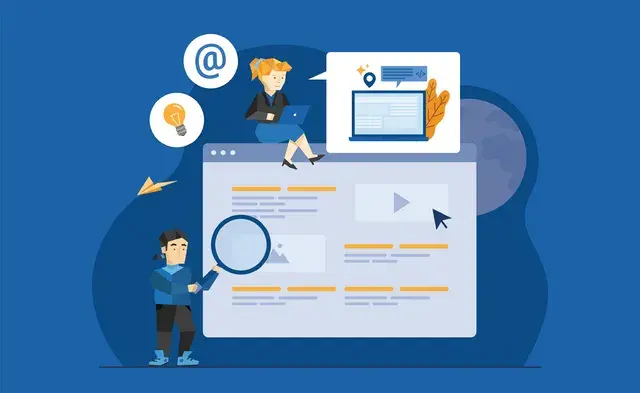Our Link Building Capability For Search Engine Optimization
Search engine optimization (SEO) is the process of optimizing your website so that Google will rank it as high as possible on its search engine results pages (SERP). The higher you rank, the more visibility you’ll have and the more organic traffic your website will receive. Since one of the major goals of inbound marketing is to put your company in a position to be found by your target audience, SEO is a critical component of your overall marketing strategy.
When it comes to optimizing your website for SEO, note that Google takes into account a variety of different factors when ranking pages. Combined, these factors help Google to determine the relevance and quality of your website’s content. One of these factors happens to be backlinks. Because your page rankings rely in part on your website’s ability to earn backlinks, don’t overlook the importance of link building to a comprehensive SEO strategy.
The Importance Of Link Building
Without a link building strategy, your content won’t attract nearly as many readers as it potentially could. Besides bringing in traffic from other websites, backlinks contribute to your rankings, which can result in more organic traffic from Google. In fact, Google is the reason why link building is so important.
The Origins Of Google
Google began in 1996 but was officially founded as a company in 1998 by Larry Page and Sergey Brin. At that point in time, search engines ranked results based on how often search terms appeared on the page. This, of course, made it easy for websites to trick search engines by stuffing their content with keywords. Page and Brin began Google after theorizing about a system that could analyze the relationships among websites and that could determine the relevance of a webpage by the number of pages along with the importance of those pages linking back to the original website.
All Other Search Engines Started Using Link Signals
Once Google launched, it wasn’t long until everyone realized their method of using link signals was effective. By 2000, AOL had selected Google as a search partner, while Yahoo! and MSN both developed new search engines that also relied on link signals.
What Is Link Building?
Earning backlinks is not something that’s out of your control, even if it may appear to be. Just because link building relies on other websites linking to your content does not mean that you can’t influence other websites to do so through a variety of tactics. Taking a proactive approach will help increase the chances of earning backlinks, whether it’s by building relationships with other companies and influencers within your industry, creating high-quality content that ranks well in order to increase exposure on SERPs, encouraging readers to share your content for more exposure, and building your brand authority so that your content is seen as a reliable source on industry-specific information.
Essentially, an effective link building strategy consists of three main components — creating high-quality content that’s relevant and helpful and that’s worth linking to, establishing yourself as an authority in order to foster a reputation as a reliable source, and increasing the exposure of your content.
Is It True That Link Building Can Harm A Website?
Although Google doesn’t explicitly state how it calculates page rankings, the factors that contribute to their rankings have been discovered through trial and error over time. Unfortunately, as these factors were discovered, many websites sought to exploit them wherever possible in order to boost their page rankings without actually earning those rankings. This resulted in poor quality content ranking high on Google’s SERP.
As far as link building goes, many websites began paying for backlinks from “link farms” as well as spamming comments in online forums and message boards in order to post links back to their website. These acts helped improve their rankings in an unfair way. Since Google’s main goal is to provide its users with content that’s relevant and of high quality, they have gone through great efforts to eliminate these issues. They now evaluate the backlinks that you earn in order to determine whether they are coming from a reputable source or not. This means that if they don’t come from a reputable source, it could potentially hurt your page ranking.
Google Has Well Documented Guidelines
To ensure that websites do not implement black hat tactics (tactics for unnaturally increasing page rankings in ways that Google frowns upon), Google has a list of guidelines to follow. It’s helpful to become familiar with these guidelines since it is possible to accidentally break the rules without realizing it. Some of the techniques that Google will penalize include creating pages with little to no content, using hidden text or links, stuffing your pages with irrelevant keywords, and more.
A Majority Of These Guidelines Affect Link Building Specifically
Unethical link building was such a problem that Google addressed it in a number of different ways throughout its guidelines. Google specifically warns against using hidden links, participating in link schemes, using sneaky redirects, and participating in affiliate programs that don’t provide value.
Google Launched Link Penalties In 2012
Google routinely updates its algorithm to continuously improve its ability to rank content effectively so that they can deliver relevant, high-quality results that match their users’ intent. On May 10, 2012, Google launched one of their biggest updates — named the Google Penguin update. Although Google had been penalizing websites using blackhat backlink practices prior to Penguin, it was with Penguin that they published their guidelines and made the public aware of their penalties.
The Original Penguin Penalty
Penguin was the part of the Google algorithm that is responsible for identifying links that Google considers manipulative. Penguin works in real-time to identify bad links and will penalize websites automatically. These penalties show typically in the form of page ranking reductions. The page may drop one or two spots down the page or could drop pages down. This can have a significant impact on pages that were ranked on the first page and are dropped to the second or third page of Google’s SERP since few users make it past the first page.
Other Link Penalties Over The Years
At first, Penguin would devalue the entire site. However, penalties became less harsh over the years as Penguin was updated. Now, Penguin devalues the link, so instead of dropping the ranking of the page or the website, it simply treats the link as if it’s not there at all, which means it provides zero value to your ranking efforts but also doesn’t hurt them either. This helps keep websites who unknowingly earned spammy backlinks from being severely punished. However, if it’s obvious that a website is trying to game the system using backlinks, Google may punish them by delisting them from their SERP altogether.
Google Can Also Issue A Manual Link Penalty
Although Google’s Penguin algorithm is capable of crawling through the web in search of manipulative links and penalizing those sites in real-time, Google can also issue manual link penalties, which are applied by their webspam team.
What Is A Manual Penalty?
Google has a webspam team that consists of actual persons who manually review link profiles, determine if a blackhat practice has been employed to boost page rankings, and who decides what the penalty will be. Manual penalties are triggered by certain events, such as if the website being linked to belongs to a competitive niche actively monitored by Google or if a competitor of that website filed a spam report. In some cases, it can be just bad luck that draws the attention of the Google webspam team.
3 Reasons To Build Links Despite The Perceived Danger
As long as you abide by Google’s guidelines, your website shouldn’t be in danger of being severely penalized. Google’s algorithm has improved significantly over the years, allowing them to tell the difference between those who truly are trying to take advantage and those who may have made an error accidentally. There’s no reason to abandon building links to improve your rankings as long as you do it the right way.
Google Publically States Backlinks Are In The Top Three Important Signals
Although we don’t have a perfect breakdown of what factors contribute to how Google ranks pages and how those factors are calculated, we do know what the three most important ranking signals are. That’s because in 2016, Andrey Lipattsev, who was a search quality senior strategist for Google at the time, revealed what those ranking signals were:
Signal 1 – Backlinks
When earned legitimately by following Google’s guidelines, pages that earn a lot of backlinks will rank very well. This is because backlinks from reputable websites indicate that those websites think highly enough of your site in general to link to it. It’s like a website referral of sorts that speaks to your brand authority. When a page earns a backlink, it likely means that the site linking to your page believes that the content on that page is relevant and useful for their audience and advocates the quality of the actual content.
Signal 2 – Content
While backlinks certainly help bring attention to pages that must provide quality of some sort, the content itself is also a major ranking signal. After all, the content being served to Google’s users must meet their intent. The pages that host content that has been properly optimized using relevant, detailed keywords and that is well-written and provides value (which is typically long-form content), are the pages that tend to rank well. Pages with thin content or content that is poor, outdated, is irrelevant, or isn’t properly optimized, won’t rank well.
Signal 3 – RankBrain
RankBrain is the part of Google’s algorithm that’s able to identify user intent. Prior to RankBrain, a very basic algorithm was used to identify content that might be relevant to Google’s user queries. RankBrain uses machine learning to match content with user intent. It can also apply factors to improve SERP results based on the user’s location, personalization, and the words used by the user to submit their query.
Your Competitors Are Building Links
Your competitors aren’t just competing with you in sales, they’re competing in SEO. The better their pages rank, the more it will affect you. For example, should one of their pages rank higher than a similar page that you have that’s optimized for the same keyword, they’ll appear before you on Google’s SERP, which means that your target audience will be clicking on their link first. Since link building affects rankings, you can assume that your competitors are well at work earning backlinks.
It’s also worth mentioning that if they’re earning backlinks from other websites, then they’re also more likely to build relationships with those sites that have linked to them — relationships that you could have benefited from and which you may not be able to anymore since they beat you to it.
Building Links Still Works
The Internet is built on links. Google’s entire search engine is (obviously) dependent on links, so there’s no reason to assume that building links is an outdated strategy. Earning backlinks is still incredibly effective. Even if it no longer had the impact on SEO rankings that it currently does, a backlink can still help provide your website with more exposure to an audience that’s potentially relevant to your business.
5 Ways to Avoid or Mitigate Potential Danger From Link Building
While receiving a few bad backlinks shouldn’t hurt your page rankings anymore, you can be penalized if Google determines that your site is receiving too many bad backlinks for it to be an accident. Make sure that you mitigate any potential risk involved with link building just to be safe. Here are five ways to prevent your website from earning bad backlinks:
Keep Google’s Guidelines In Mind
Familiarize yourself with Google’s guidelines. They give you a good idea of what Google frowns upon. However, you don’t need to be scared of strict adherence. For example, just because their guidelines say to avoid participating in affiliate programs without adding sufficient value doesn’t mean that you should just avoid affiliate programs altogether.
Always Assess Each New Strategy For Its Risk
Keeping Google’s guidelines in mind, assess new strategies for potential risks that could result in penalties. Figure out what the worst-case scenario is as well as what the best-case scenario is to determine if the risk is worth taking.
Keep Records Of Link Building
Monitor the backlinks that your website is earning and keep records of what websites are linking to your pages. Consider performing a manual review to check the relevance and quality of the websites that are linking to you. For example, maybe you earn a link on a new blog post from a website you’ve never heard of before. Be sure to check that website out. If you suddenly have thousands of spammy backlinks, it could mean that you are under a negative SEO attack. A negative SEO attack occurs when a competitor or cyber-criminal sends thousands of bad backlinks to your site to tank your SEO efforts or to extort a ransom from you.
Send Your Links To Blog Content
When earning backlinks, focus on getting websites to post links that lead to your blog pages. This helps protect the rest of your website in case these backlinks turn bad. Blog content is non-essential to your overall strategy when compared to the main pages of your website, which means you’ll help mitigate the negative impact of a bad link by limiting it to your blog. If the ranking of a blog post dips, it won’t have as big of an impact on your website than if the ranking of your homepage dipped.
Make Sure Your Links Look ‘Natural’
Google Alerts allows you to input keywords so that you can receive notifications when content using those keywords is published. Google Alerts makes it easy to monitor the social conversations surrounding your competitors since you can simply input the names of their companies to receive the results. You can get a good idea of how aware people are of their brand as well as determining whether the overall conversation surrounding a competitor is positive or negative using a sentiment analysis tool.
How We Manage Link Building Projects
As part of a comprehensive SEO strategy, we put a lot of emphasis on link building. Our goal is to help your website earn as many high-quality backlinks as possible and to mitigate the risk of bad backlinks. To achieve this, we focus on these proven link building tactics:
Skyscraper Link Building
Skyscraper link building is a very effective technique if properly executed. It involves identifying content that’s relevant to your business and that has earned a lot of backlinks. We then create a unique piece of content that improves on that original piece of content. Through the use of digital PR, we will then reach out to all of the websites that were linking back to the original piece and get into contact with the appropriate decision makers. We will then request that they replace their old links to the original piece of content to new links to your new piece of content.
In essence, it’s a practice in which you one-up a competing piece of content and steal their backlinks away from them. This can be a very successful practice if the content you create is of high quality since websites, in general, want to link to the best, most relevant, and most up-to-date content available.
Complementary Link Building
Complementary link building is a tactic that involves identifying people who write high-quality content that’s relevant to your business. Once we’ve found those people, we will create content on your behalf that’s tailored specifically to complement the content we found. We will then reach out to those creators (or the decision-makers that they work for) to convince them to link their content to the content that we created. This method of link building tends to see great success since it will be easy to see that they can add value to their content by linking to your content.
Monitoring And Building Your Backlinks Is Essential To Successful SEO
Backlink building is an important facet of your SEO strategy. We can help you monitor your existing backlink profile and avoid potential Google penalties as well as implement an effective backlink building strategy that’s tailored to your business.


